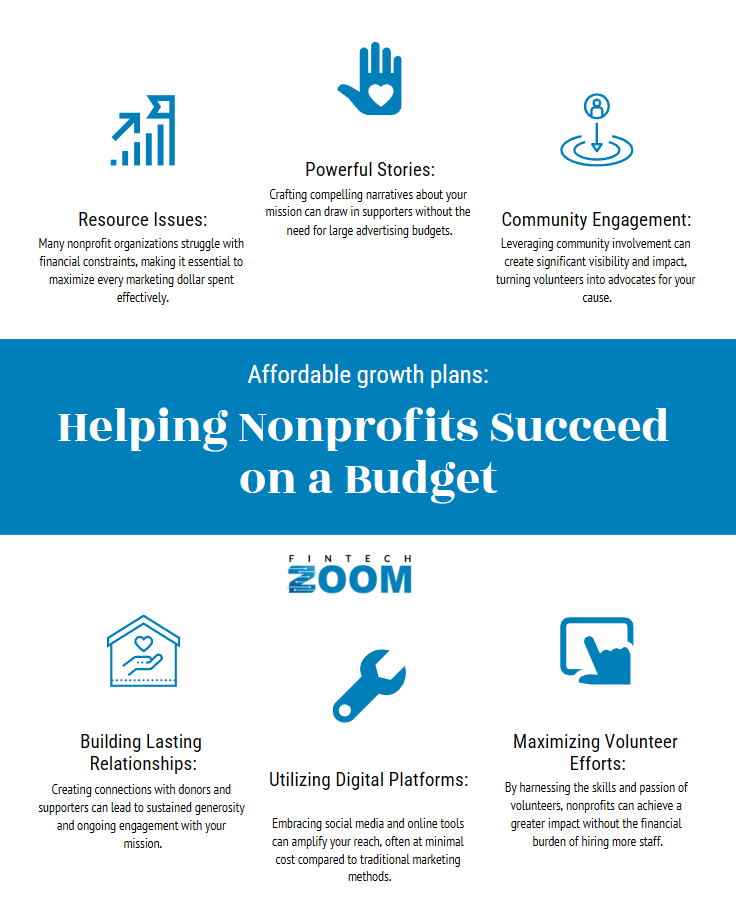Nonprofit organizations operate on a tight budget. They often face budget limitations when it comes to marketing. But they still need an engaging and functional website to bring awareness, connect with supporters, and facilitate donations.
If you’re a marketing agency wanting to support these organizations doing meaningful work, this is a chance for you. Let’s understand how you can help nonprofit organizations become big without big budgets.
Start with understanding nonprofit objectives
Before building a website, it’s essential for agencies first to understand the mission and goals of the non-profit. Different organizations may have different expectations from a website. Are they focusing on fundraising, event management, volunteer engagement, or community awareness?
Listening to what non-profits need, rather than assuming, allows agencies to craft solutions that truly matter. For example, if volunteer engagement is a priority, agencies might design an interactive volunteer portal to make it easy for people to sign up and get involved.
Affordable packages designed with non-profits in mind
Agencies should develop cost-effective website packages. This doesn’t mean compromising quality; instead, it’s about offering smart, scalable solutions. Basic packages could include core pages like the homepage, about section, and donation portal, with options to add more features based on the non-profit’s needs.
Some of the common flexible, budget friendly platforms are WordPress, Wix, and Squarespace to build websites quickly. These platforms come with customizable templates and plugins, saving time and money while delivering professional results.

Essential website features for non-profits
What makes a non-profit website effective? Right tools in place.
Donation buttons, event registration forms, and volunteer portals are must-haves. Marketing agencies can integrate these elements using cost-effective or free plugins. For instance, adding PayPal or Stripe as donation gateways is a simple, low-cost solution that empowers nonprofits to collect funds seamlessly.
Mobile responsiveness and accessibility are also critical. Many supporters will visit these websites on their phones, and others might rely on screen readers or assistive devices. Make sure the site functions well for all users.
Offering SEO and content strategy support
A website alone isn’t enough. People need to find it. Marketing agencies can support non-profits by offering affordable SEO services. It doesn’t take a massive budget to implement basic SEO practices like optimizing keywords, meta tags, and image alt texts. These little things can have a great impact on a website’s visibility online.
Content is another powerful tool. Agencies can help nonprofits develop engaging blogs, event updates, and success stories that keep visitors coming back. Publishing guest posts on other websites and linking them back to the original site is a great way to boost website authority and search rankings. Although not every marketing agency is well-versed in guest posting and link building, they can leverage white label link building services to extend their offerings.
For performance monitoring, free tools like Google Analytics and Google Search Console can be used. It provides insights into traffic sources, user behavior, and keyword performance.
Building long term support partnerships
Websites need ongoing care to remain effective. As a marketing agency, you can offer maintenance packages that fit within non-profit budgets, covering routine updates, content management, and technical support. Regular check-ups and performance reviews keep the website aligned with the organization’s needs.
These partnerships also build trust. By providing consistent support, you, as an agency, position yourself as a reliable partner invested in the long-term success of the non-profit. It’s not just about a one-time project but an ongoing relationship that grows and evolves as the organization does.
Promoting success stories to build agency credibility
Success breeds success. For marketing agencies, highlighting completed non-profit projects can be a powerful way to attract new clients. Case studies that show how a well-designed website increased donations or volunteer engagement showcase the agency’s expertise and commitment to making a difference.
You can use testimonials and stories from satisfied non-profit clients. Sharing these on the agency’s website, social media, or other marketing channels helps build trust and brand.
Summary
Providing website development services to non-profits is more than just a business opportunity; it’s a way for marketing agencies to make a real difference.
Start with understanding the needs of these organizations and then create affordable packages, and offer ongoing support. This way, you can help nonprofits achieve their goals while building your own reputation and client base.


